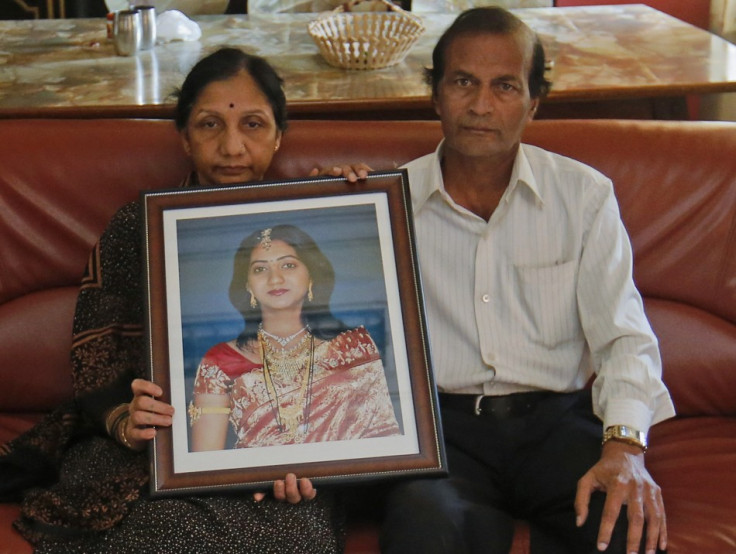Savita Halappanavar Abortion Death Probed by Irish Health Watchdog
University Hospital Galway doctors refusal to grant abortion to woman in severe pain prompts third investigation

A formal investigation into the death of a woman who was refused an abortion has been launched in Ireland.
Savita Halappanaver, who was 17 weeks pregnant, had begged doctors for an abortion because she was in severe pain.
But her request was refused, even though she was told by doctors there was no chance of the baby surviving.
Abortion is illegal in Ireland unless it is to save the life of the mother. Doctors at University Hospital Galway said they would not terminate the foetus while it still had a heartbeat, and Halappanaver was left in pain for two-and-a-half days before it died.
Halappanaver then developed septicaemia and died on 28 October.
The Board of Health Information and Quality Authority launched an official investigation into Halappanaver's death at the request of the Health Service Executive (HSE).
"The investigation will assess whether the services provided complied with the National Standards for Safer Better Healthcare and national and international evidence of what is known to achieve best outcomes," said the board.
The HSE has already launched its own investigation and University Hospital Galway will conduct an internal investigation.
Since Halappanaver's death, abortion laws in Ireland have been severely criticised.
Rachel Donnelly, a spokesperson for Galway Pro-Choice, said: "This was an obstetric emergency which should have been dealt with in a routine manner.
"Yet Irish doctors are restrained from making obvious medical decisions by a fear of potentially severe consequences.
"As the European Court of Human Rights ruled, as long as the 1861 Act remains in place, alongside a complete political unwillingness to touch the issue, pregnant women will continue to be unsafe in this country."
But ProLife Alliance said: "There has been a lot of criticism by the media in response, suggesting that she died because she was denied an abortion. Yet the abortion law and guidelines in Ireland clearly permit inducing labour where it is necessary to save the life of the mother.
"The facts as to exactly how she died remain unclear. We trust that the thorough investigations into the tragedy will provide some explanation. The immediate attacks on Ireland's restrictive abortion laws are at the very least unseemly."
© Copyright IBTimes 2024. All rights reserved.






